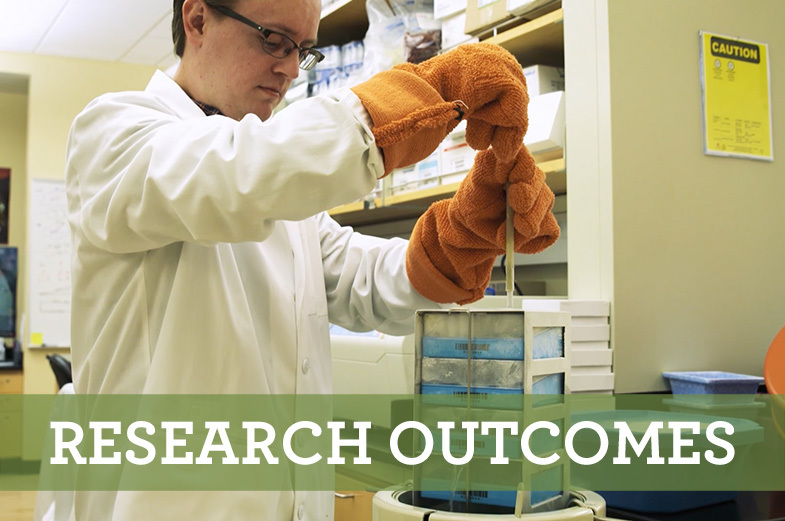In a year when it feels like most things have stopped due to the pandemic, research continues. While most research labs were affected by shutdowns for a time, researchers have found ways to carry on, working hard to find cures for childhood cancers and give survivors long and healthy lives. Read on to see a few interesting outcomes you’ve made possible.

Coming soon: clinical trial to provide hope for brain tumor patients
A new clinical trial is launching that could improve treatment for pediatric medulloblastoma patients. Supported by a Research Grant to Dr. Josh Rubin at Washington University School of Medicine in St. Louis, this trial will use personalized cancer care to improve patient outcomes. The current and previous treatment protocols are based on tumor diagnosis and not the individual patients’ cells.
“We will take material directly from the operating room, isolating tumor cells and screening their response to a few hundred drugs that are available for use,” Rubin says. “With the results of that drug screening, together with standard diagnostic workups of the tumor, we will make treatment decisions.” If this trial goes well it could pave the way to opening a bigger trial, to learn more and help more children survive.
This grant was funded by and named for the Thumbs Up Fund to Honor Brett Haubrich, a St. Baldrick’s Hero Fund created in memory of Brett, who was diagnosed at age 11 and fought a brain tumor for 3 ½ years.
Using genes to guide treatment decisions
St. Baldrick’s International Scholar, Dr. Hui Zhang published a study in the Journal of the National Cancer Institute. Formerly of St. Jude and now of Guangzhou Women and Children’s Medical Center in China, Dr. Zhang is investigating childhood leukemia and how particular inherited gene variations can affect treatment outcomes.
The research showed that an inherited gene variation strongly influences early response to chemotherapy and is linked to relapse in children with acute lymphoblastic leukemia (ALL). The gene variant was already known to scientists, but these findings strengthen the potential to use inherited variants in treatment decisions.
Understanding biology to develop treatments for DIPG, a lethal brain tumor
Diffuse intrinsic pontine glioma (DIPG) is a lethal pediatric brain tumor for which no treatment is effective. A recent study built in part on a St. Baldrick’s Research Grant to Dr. Sriram Venneti at the University of Michigan, showed that experimental drugs designed to lower the body’s natural production of alpha-ketoglutarate improved outcomes in models of DIPG tumors by slowing the growth of the cancer cell. Researchers hope understanding the details behind this finding may help develop effective ways to treat DIPG.
This grant was generously supported by the McKenna Claire Foundation, a charity partner of the St. Baldrick’s Foundation established by the Wetzel family in memory of their daughter McKenna, who battled DIPG.
Disparities seen in late effects among AYA cancer survivors
St. Baldrick’s Researcher Dr. Theresa Keegan at University of California, Davis is investigating disparities in late medical conditions among Adolescents and Young Adults (AYA) cancer survivors. Recently published results found that of AYA melanoma survivors, males, those with public or no health insurance, and those living in low socioeconomic status neighborhoods had a greater likelihood of developing adverse health conditions. These findings show a need to strengthen surveillance and secondary prevention strategies for this population.
This grant is funded by and named for the Rich and Weissman Family Lymphoma Survivorship Fund, a St. Baldrick’s Hero Fund created to fund research for new treatment options for cures and less toxic late effects for survivors.
The St. Baldrick’s Foundation also recently partnered with the Melanoma Research Alliance to support a Pediatric Melanoma Young Investigator Award to fund research to improve the diagnosis, understanding, and treatment of pediatric melanoma.
Rare pediatric disease designation from the FDA for new osteosarcoma treatment
Announced in September, the U.S. Food and Drug Administration (FDA) granted rare pediatric disease designation for IVT-8086, a monoclonal antibody for the treatment of osteosarcoma, a cancer of the bone. This study from Innova Therapeutics Inc. was partly the outcome of work by St. Baldrick’s Scholar Dr. Jason Yustein at Baylor College of Medicine.
As a St. Baldrick’s Scholar, Dr. Yustein studied SFRP2, a protein expressed in a variety of tumors, including osteosarcoma, and he has since collaborated with the team at Innova Therapeutics. IVT-8086 is believed to be the only SFRP2 antagonist drug in development. Researchers believe the drug is promising for the improvement of patient outcomes.
Not every publication of research supported by St. Baldrick’s makes the news, but each one adds to the body of scientific knowledge that takes us one step closer to better outcomes for kids with cancer. Your continued support will make more research possible to Conquer Kids’ Cancer.
Read more on the St. Baldrick’s blog:

 SBF
Tweets »
SBF
Tweets »